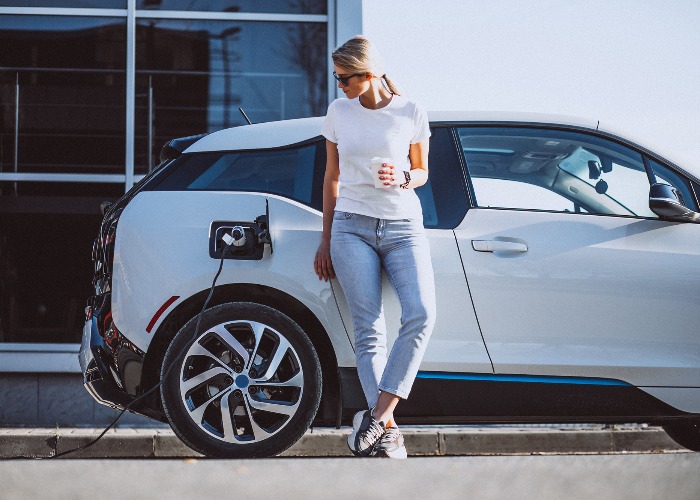Road pricing: how to fill £30 billion tax hole from electric cars

Drive towards greener cars will leave a big hole in the nation's finances. How can we fill that gap?
There’s undoubtedly a big move towards electric vehicles underway in the UK.
The Government has announced a ban on the sale of new petrol and diesel vehicles from 2030, while sales of electric and hybrid motors have been growing sharply for some time.
But while the move to greener motoring is obviously a good thing for the environment, it will have a knock-on effect on the nation’s finances too.
After all, if we aren’t filling up at a petrol garage, then the Treasury won’t be seeing the same sort of income from Fuel Duty.
What is going to fill that tax black hole?
Cheap fuel: how to save on petrol and diesel
The scale of the tax hikes needed
A new report from the Global Institute for Change, the think tank set up by the former Prime Minister Tony Blair, has delved into what may lie ahead in the move towards greater numbers of electric vehicles on the roads.
And a big issue will be the lack of Fuel Duty income for the Government. The report suggests that the move will result in a tax black hole of an astonishing £30 billion.
That’s an extraordinary figure, far too much to simply be waved away or covered by small tweaks to the tax system.
The report argues that in order to balance out the lost revenues from Fuel Duties, the Treasury will have to find tax rises equivalent to as much as 2p on Income Tax by the end of the next Parliament.
It will then have to go even further as the remaining non-electric motors gradually phase out of use, as the fuel revenues will drop still further.
As a result by 2040, the Treasury will need to come up with the equivalent of increases worth up to 6p on Income Tax by 2040.
Of course, sticking the entirety of that on Income Tax alone would be a blunt and hugely unpopular way of handling the funding issue.
In reality, there are plenty of different ways this money could be raised, as the report suggests, by looking afresh at how we handle taxing our car use.
Making tax fair
On the face of it, the way we are currently taxed when we fill up is fair. I pay the same rate of tax on every litre I buy as billionaires.
But as the report highlights, this isn’t really true.
While the wealthier may pay more in total filling up their larger cars, overall they are only paying a tiny percentage of their income on fuel and Fuel Duties, typically around 2%.
By contrast, the lowest earners end up spending 4% of their income on fuel and tax.
This division is actually likely to get greater in the years ahead, precisely because of the green drive.
At the moment, the report noted, the median driver spends around £1,100 a year on fuel and vehicle excise duty, of which around £750 is tax.
Yet it’s wealthier motorists who tend to drive newer cars, and so are most likely to be driving electric cars. And given electric car drivers pay only £320 a year, of which £20 is tax, there’s a clear division between the haves and have nots.
That ignores the regional differences too, with the suggestion that those in the south are more likely to adopt electric vehicles first, and therefore more likely to see those financial benefits.
How are we going to fill that black hole?
The Institute for Global Change’s report highlights some of the options open to the Government in order to tackle the taxation hole in a fair manner.
There are a couple of options that it argues should be ruled out straight away.
Simply raising the existing rates on fuel would be unfair on those who can’t afford to switch to electric yet, while it also suggests that adding duty to the energy used to charge electric motors would be difficult to implement, and may actually dent the transition to electric vehicles.
Instead, the argument is that some form of road pricing is the right way to go.
Road pricing is a pretty broad term though ‒ it can mean an awful lot of different things.
For example, the most straightforward is perhaps charging drivers a flat rate for each mile they drive. Alternatively, we could go down the time route, charging drivers based on the minutes they spend behind the wheel.
There could be a geographic element too, with the costs changing based on precisely where you are driving, or a dynamic model where you are charged not only based on the road you’re using but on the time you’re using it.
For example, the rate may be higher during rush hour in city centres, compared to if you’re on the road late at night on an empty road.
None of them are entirely easy to implement ‒ they will all involve some tracking of our cars and where we are on the nation’s roads. Introducing any of these models ‒ or even a mix of them ‒ will be tricky for any Government, but let’s be honest, there really isn’t much of an alternative.
The simple truth is that the move towards more environmentally-friendly motors is happening, and the inevitable hole that the move will leave in the nation’s tax revenues needs to be filled.
The Government needs to think clearly now about how it will address that hole in as fair a way as possible.
Comments
Be the first to comment
Do you want to comment on this article? You need to be signed in for this feature